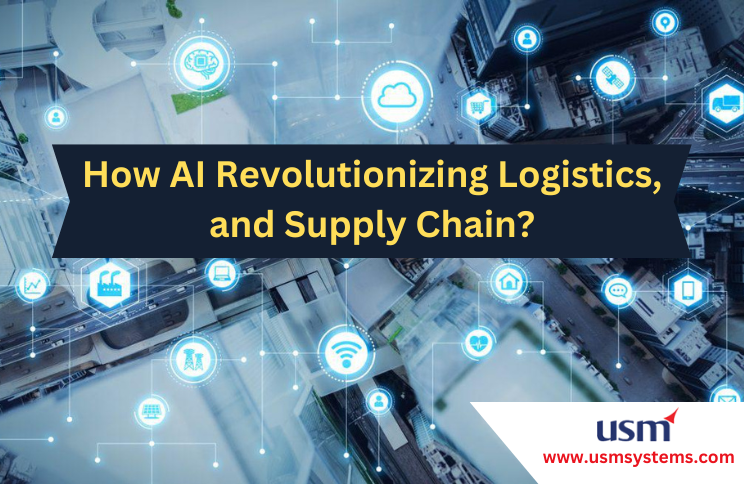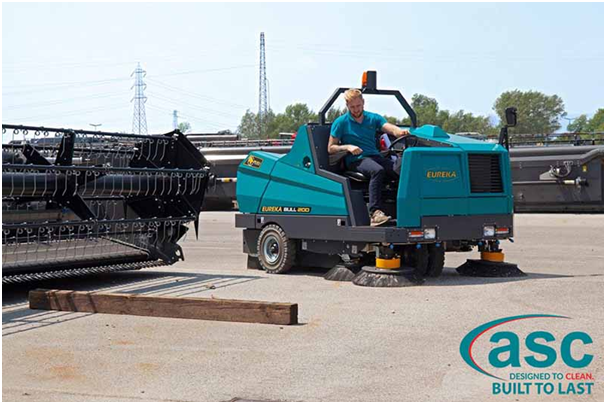The logistics and supply chain management industry is rapidly changing and adopting new technologies to streamline processes, increase efficiencies, and reduce costs. One of the most significant technological advances in recent years is the integration of artificial intelligence (AI) into logistics and supply chain management. AI is revolutionizing the industry by automating processes, providing predictive information, and optimizing the entire supply chain. In this article, we will delve into how AI is transforming logistics and supply chain management.
The logistics industry involves the entire supply chain management process, from the acquisition of raw materials to their transportation and distribution. With the incorporation of AI in logistics, the costs of operations can be dramatically reduced with increased productivity and smooth operations. It would not be an exaggeration to say that the user experience is not limited to the Internet, but is equally important in logistics and supply chain management. This can only be achieved with digital transformation. Process automation reduces the possibility of errors and delays and helps in predictive analysis to improve processes.
How can AI be used to regulate supply chain management in logistics?
AI has the potential to completely regulate and revolutionize the supply chain of a product. Doing so would help speed up work in a company and ensure that the product in demand is manufactured and distributed efficiently.
Predicting product demand and planning logistics can improve service, lower transportation costs, and save money. The AI predicts the market, changes orders, and redirects products into storage. These estimates help your companies modify orders and deliver in-demand products to local warehouses. AI can connect warehouses to discover the optimal inventory transfer solution.
Recommended To Read: Artificial Intelligence in supply chain management
Automated Warehouses and Distribution Centers
AI-powered robots and automated systems are transforming warehouses and distribution centers by streamlining operations, improving efficiency, and reducing human error. With AI-powered robots, companies can automate the entire process of picking, packing, and shipping products. These robots can work 24/7 without getting tired, improving the speed and precision of the entire process.
AI-powered machines can also optimize warehouse layout, reducing the time it takes to pick and pack products. By analyzing data from previous orders, AI-powered machines can optimize the placement of products in the warehouse, making it easier and faster for workers to pick and pack products.
Predictive Analytics
AI is also transforming supply chain management by providing predictive analytics. Predictive analytics is the practice of determining the likelihood of future outcomes based on historical data using data, statistical algorithms, and machine learning approaches. With predictive analytics, companies can forecast demand, optimize inventory levels, and reduce waste.
Recommended To Read: Best IOT Apps for iPhone for supply chain tracking
For example, AI-powered systems can analyze past order data and forecast future demand for a particular product. This information can be used to optimize inventory levels, ensuring that the right amount of products is available at the right time and that there are no overstocks or understocks. This can also help reduce waste by ensuring there is no excess inventory and products are not overstocked.
Tracking and Monitoring in Real-time
AI-powered systems can also provide real-time tracking and monitoring of products throughout the supply chain. This information can be used to optimize routes, reduce transit time, and improve delivery accuracy. With real-time tracking, companies can ensure products are delivered on time and in good condition, improving customer satisfaction.
These systems can also monitor the condition of products during transport, ensuring that they are not damaged or spoiled. For example, AI-powered sensors can monitor the temperature and humidity of products during transport, ensuring they are stored in the proper conditions required to maintain their effectiveness.
Recommended To Read: Artificial Intelligence and Robotics and their impact on the Workplace
Route Optimization and Cost Reduction
AI-powered systems can optimize routes and reduce costs by analyzing data from multiple sources. By analyzing data from traffic patterns, weather forecasts, and historical data, these systems can optimize delivery routes, reducing transit time and fuel costs.
These AI-powered systems can optimize routes to avoid traffic congestion, thereby reducing the time it takes to deliver products. This can help reduce fuel costs, as drivers spend less time idling in traffic. The systems can also optimize routes to reduce the number of miles driven, which reduces fuel costs and emissions.
Request Planning
AI is transforming demand planning by providing real-time, accurate insights into customer behavior and preferences. AI-powered systems can analyze customer data from multiple sources, including social media, online reviews, and customer service interactions, to identify patterns and trends. This information can be used to create targeted marketing campaigns and improve customer engagement.
Recommended To Read: Future of ai and ml in Banking and financial sector
Companies can also use AI-powered systems to anticipate changes in client behavior and preferences, allowing them to adapt their product offerings accordingly. Companies can increase customer happiness and cut expenses by anticipating changes in demand.
How can Appinventiv help you improve your logistics management using AI?
Whether you are a start-up or an established company in logistics management, the essentials you need to integrate and implement the right AI tool to take your organization to the next level can be achieved by partnering with
A company you can trust
A company with the right technological resources
A company with experience in what it does
At USM Business Systems we have worked with multiple companies providing them with various digital solutions for all their problems, and we are happy to do the same for you. We love to listen carefully to each problem and stop it with the help of innovative technologies combined with the experience of our team.
Conclusion
Artificial intelligence continues the development path of digitization and becomes a bigger and more essential part of daily business. In industries like logistics, the AI you receive from experience is a useful method of determining important problems. Applications of Artificial intelligence are playing an important role in paving the way for a predictive, proactive, and personalized perspective on logistics.
USM is one of the leading Artificial intelligence development companies in Frisco, providing the best AI solutions for various industries, including logistics. We have more than 23+ years of experience developing AI applications that help improve your business in the competitive world

 Yamuna M
Yamuna M



